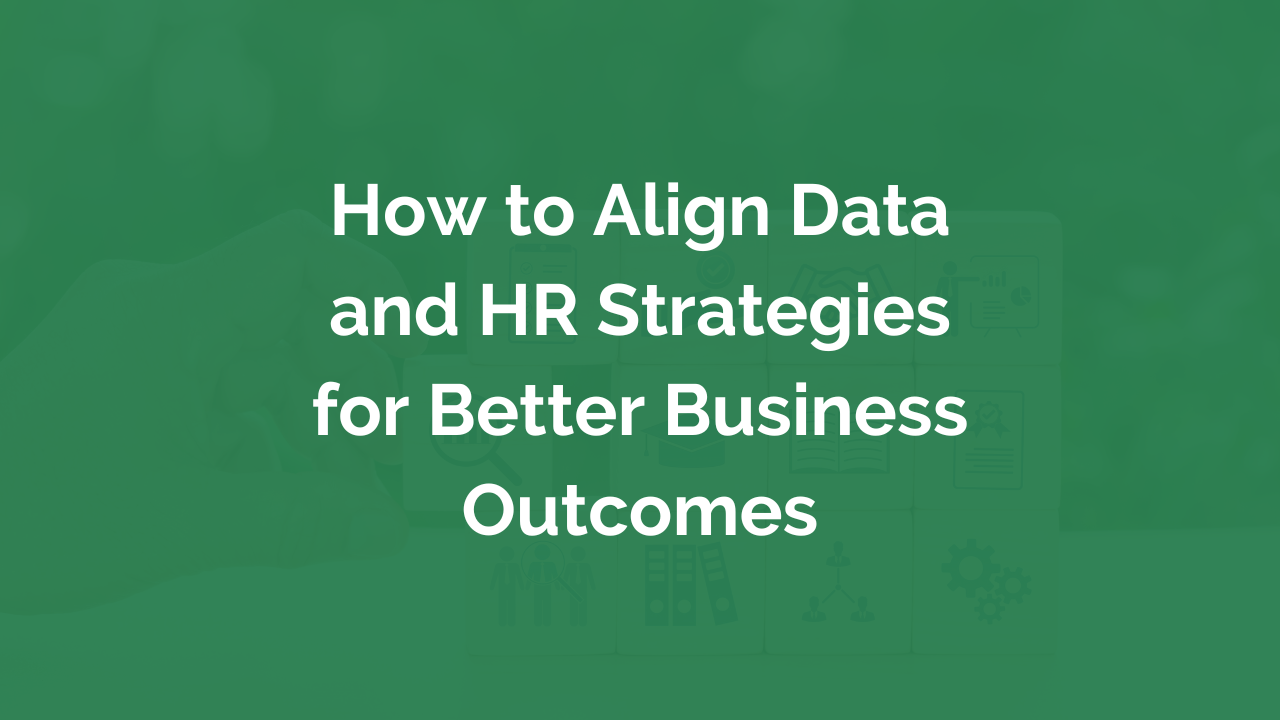I’ll say it: traditional employee engagement strategies, such as sending out the same old questions once a year, just aren’t cutting it anymore (or shouldn’t be). First, they don’t give us real insight into what employees are actually experiencing in their day-to-day lives. Secondly, they don’t help us gather the deep data needed to make meaningful organisational changes. Sure, At a surface level – but are you only interested in the surface?
Read MoreWhen servicing your car, you want to ensure the investment is worth it. You want to know precisely what you are paying for and the benefits it will bring. You expect an accurate report on how well your car is running, what needs to be done to improve its performance, and the return you can expect on your investment.
Read MoreIn recent years, people analytics as a function has undoubtedly stamped its mark on the business world. Allowing organisations to understand better and predict their human resources has proven itself as a critical source of business value creation in both small and large businesses alike.
Read MoreIn a time where organisations strive to enhance productivity, combat employee burnout, and stay ahead in a competitive market, understanding and managing EX have become the key differentiator for any successful business. Organisations that recognise these shifts in the macro work environment and prioritise how they listen, measure, and act on employee feedback will be best positioned to compete for talent, positively impact employee retention, improve employee engagement and increase the productivity and satisfaction of people at work.
Read MoreIf you think back 20 years ago, people analytics was nothing but a twinkle in the eye of HR professionals. Fast forward to today, and it’s one of the biggest value drivers for HR. To drive successful HR and organisational transformation, leveraging people analytics for better decision-making has become essential to any Human Resource strategy. And as we move from traditional methods of managing people to more automated, data-driven approaches, people analytics has become the bridge between HR and strategic business objectives.
Read MoreNew technologies, shifting demographics, wage inflation and global competition, have pressured organisations to stay ahead of the curve. With the exponential adoption of artificial intelligence (AI) shaping the future of work, the World Economic Forum’s research has predicted that 50% of jobs will change by 2025.
Read MoreFor decades, the HR function has always been seen as the support function of an organisation that focuses on employee benefits, payroll and administration. As the business landscape evolved and C-level executives realised the importance of HR in achieving successful business outcomes, the HR function has become a critical part of all organisations. HR departments need to arm themselves with HR analytics to be strategic partners. After all, data can drive insights and decisions that can help organisations improve employee engagement and reduce turnover in ways that genuinely create tangible business outcomes.
Read MoreTransparency is crucial when it comes to cultivating a positive work culture. It allows for open communication and collaboration; with it, organisations can retain the trust and loyalty of their employees. According to Slack’s Future of Work study, 80% of today’s workers want insights into how decisions are made at their organisation, and 87% of today’s job seekers want transparency in their future workplace.
Read MoreSustainability is an increasingly important concept in today’s global economy, prompting businesses of all sizes to reduce their environmental footprint and impact. Whether through implementing green initiatives to reduce carbon emissions or through organisational change to promote more sustainable practices in daily operations, these actions can have a real and positive impact on our planet and our business.
Read MoreThe old saying goes, "People are your greatest asset." That is why employee primacy should sit at the heart of any successful organisation. Put simply; employee primacy is placing employees at the forefront of decision-making and prioritising their needs within a business. It's more than just providing competitive wages or a superior benefits package. It involves understanding what truly motivates your people, inspiring them with meaningful work, empowering them to make decisions, while creating an environment that promotes career development and allows them to reach their full potential.
Read More









